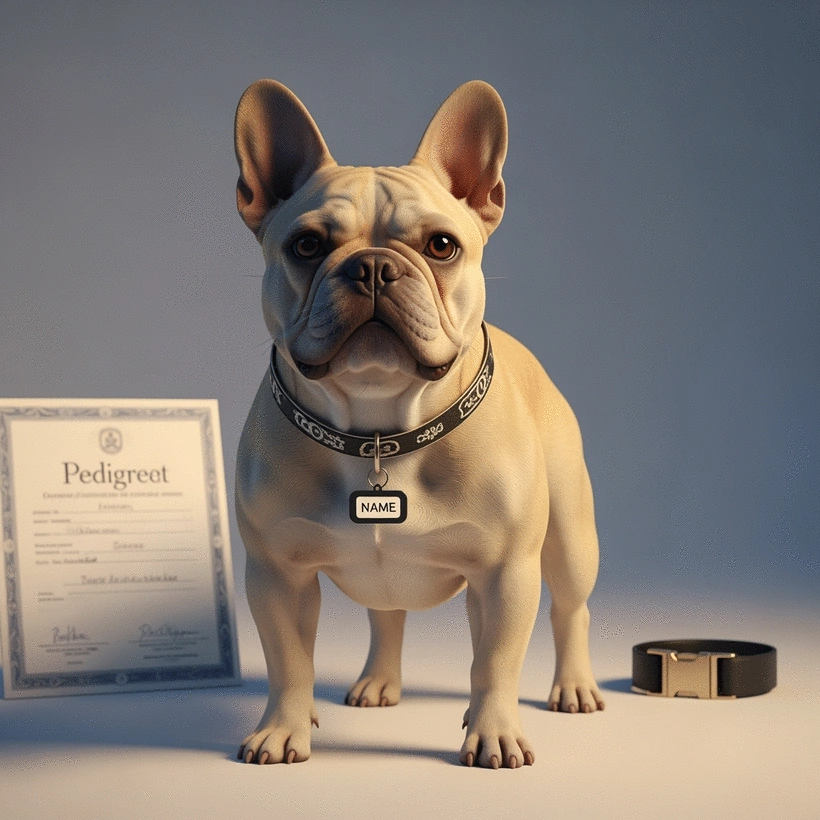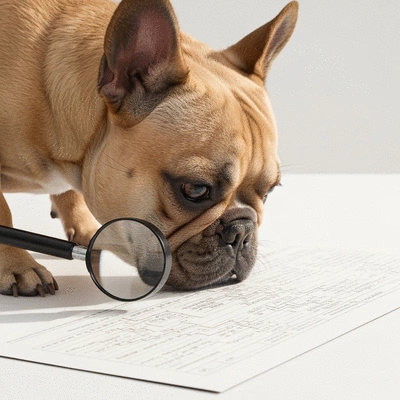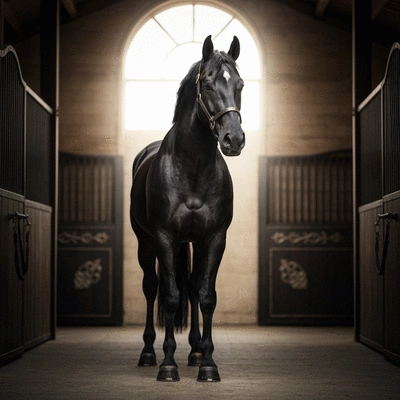French Bulldog Bloodlines Explained

Have you ever wondered how a dog’s family tree could affect its health and behavior? Understanding the intricacies of lineage can be the key to ensuring a happier, healthier life for your French Bulldog. Let’s dive into the essential takeaways from this comprehensive guide on French Bulldog bloodlines!
What You Will Learn
- Lineage influences a French Bulldog's temperament, helping anticipate personality traits like playfulness and loyalty.
- Understanding bloodlines is crucial for predicting potential health issues, enabling proactive care for your dog.
- A well-documented pedigree is vital for adhering to breed standards, impacting both health and appearance.
- Reputable organizations like the AKC play a key role in verifying bloodlines and maintaining breed standards.
- Specific genetic traits can affect coat color, size, and health predispositions, informing choices for care.
- Health testing prior to breeding can prevent genetic disorders, promoting healthier generations of French Bulldogs.
- Understanding inbreeding and line breeding is essential for maintaining genetic diversity and overall breed health.
French Bulldog Lineage: Key Influences & Considerations
Understanding a French Bulldog's lineage and pedigree is crucial for predicting health, temperament, and adherence to breed standards. Here’s a breakdown of the key factors and their implications:
Influences of Lineage
- •Temperament: Affects playfulness, protectiveness.
- •Health Predictions: Helps anticipate potential issues.
- •Breed Standards: Ensures adherence to physical/behavioral norms.
Key Genetic Traits
- •Coat Color: Diversity linked to specific bloodlines.
- •Size Variations: Smaller/larger dogs based on lineage.
- •Health Predispositions: Risk of hip dysplasia, respiratory issues.
Common Genetic Disorders
- •Brachycephalic Airway Syndrome: Affects breathing due to flat faces.
- •Hip Dysplasia: Malformation leading to mobility issues.
- •Skin Allergies: Gene-related skin issues.
Responsible Breeding Practices
- •Health Testing: Hip, elbow, cardiac, and genetic screenings.
- •Breeder Reputation: Research and visit breeders.
- •Inbreeding/Line Breeding: Balance desirable traits with genetic diversity.
Understanding French Bulldog Bloodlines: A Comprehensive Guide to Lineage and Pedigree
When it comes to selecting a French Bulldog, understanding their bloodlines is crucial. The lineage of a dog can influence not just their appearance but also their health and temperament. As a devoted French Bulldog owner, I can attest that choosing a pup from a reputable lineage can make a significant difference in your experience. Bloodlines help ensure that the dog aligns with breed standards and can help you anticipate behavioral traits.

Moreover, lineage plays a role in recognizing potential health issues. For instance, certain bloodlines may be predisposed to specific genetic disorders, making it essential to ask breeders about health history. This proactive approach can help you avoid unexpected health problems down the line and enhance the bond you share with your furry friend!
Exploring the Importance of Lineage in French Bulldogs
Lineage is more than just a family tree; it’s a key factor that influences your French Bulldog’s overall well-being. A well-documented lineage ensures that your dog meets important breed standards, which can affect everything from their loyalty to their sociability. Here are some reasons why lineage matters: For more insights into how to choose a healthy French Bulldog, consider reading our guide on genetic health in French Bulldogs.
- Influence on Temperament: Dogs from specific bloodlines may exhibit similar personality traits, such as playfulness or protectiveness.
- Health Predictions: Understanding the lineage helps in predicting potential health issues, allowing for better care.
- Adherence to Breed Standards: A well-established lineage typically indicates adherence to breed standards, which is important for both aesthetics and behavior.
By keeping these factors in mind, you can make a more informed decision that contributes to a happy, healthy life for your Frenchie!
Breaking Down Pedigree: What You Need to Know
Pedigree charts can appear complex at first, but they are invaluable tools for understanding a dog's ancestry. A pedigree chart typically showcases a dog's lineage for three generations or more, detailing the dogs in their family tree. Here’s how to read a pedigree chart:
- Generations: The chart usually has the dog at the bottom, with parents above them, and grandparents further up.
- Titles and Achievements: Look for titles that indicate accomplishments in the show ring or working capabilities.
- Health Testing: Reputable breeders may include health clearances on the pedigree to highlight responsible breeding.
Understanding these elements on a pedigree chart enables you to gauge the quality and potential of your future French Bulldog. It’s like a roadmap to your dog's history!
The Role of AKC and Breed Registries in Bloodline Recognition
Organizations like the American Kennel Club (AKC) play a vital role in the verification of bloodlines and breed standards. They maintain records of registered dogs and their lineage, which allows for accountability among breeders. Here’s how these registries impact French Bulldog bloodlines: For further reading on selecting a responsible breeder, check out our article on finding ethical French Bulldog breeders.
- Ensuring Standards: The AKC sets specific standards that breeders must adhere to, promoting healthy and well-tempered dogs.
- Registry Verification: Registration with the AKC provides a level of assurance regarding the dog's lineage and eligibility for breed-specific events.
- Access to Resources: Breeders and owners can access resources for health testing and best practices when they are part of recognized registries.
As a French Bulldog enthusiast, I encourage everyone to check for pedigree registration when selecting a puppy, as it contributes to the overall quality of the breed!
Unraveling Genetic Traits in French Bulldog Bloodlines
Key Genetic Traits Affecting Health and Appearance
Understanding the genetic traits associated with French Bulldogs can help you make better choices for your pet’s health and appearance. These traits are influenced by their bloodlines and can affect everything from coat color to size. Here are some key genetic traits:
- Coat Color: French Bulldogs can exhibit a variety of coat colors, from brindle to fawn. This diversity is often linked to specific bloodlines.
- Size Variations: Some bloodlines produce smaller or larger dogs, which is important to consider for your living space.
- Health Predispositions: Certain lines may have known predispositions to health issues, such as hip dysplasia or respiratory problems.
Being aware of these traits will help you provide the best care tailored to your Frenchie’s unique characteristics!

Understanding Genetic Interactions and Their Health Implications
Genetic interactions can significantly affect the health of your French Bulldog. For example, specific gene combinations may lead to enhanced health or, conversely, to vulnerabilities. Here’s how different genes can interact:
- Coat and Skin Health: Genes affecting coat quality can impact skin health, which is essential for preventing irritations.
- Behavioral Traits: Some genes are linked to temperament, influencing how your dog interacts with humans and other pets.
- Physical Traits: Interactions between genes can determine physical attributes like facial structure, which has implications for breathing.
By understanding these interactions, you can better prepare for your French Bulldog's health and needs throughout their life!
Addressing Genetic Health Risks and Disorders in French Bulldogs
French Bulldogs, like any breed, are susceptible to certain genetic disorders. These health risks can stem from their bloodlines, making it crucial for owners to be informed. Common genetic disorders include:
- Brachycephalic Airway Syndrome: This condition affects breathing and is a significant concern for French Bulldogs due to their flat faces.
- Hip Dysplasia: A malformation of the hip joint can lead to arthritis and mobility issues.
- Skin Allergies: Some Frenchies may suffer from skin issues related to their genes, impacting their quality of life.
Prioritizing genetic testing and health screenings can help you manage these risks effectively, ensuring your Frenchie lives a long, healthy life!
Responsible Breeding Practices for Healthy Lineage
The Role of Health Testing in Breeding Practices
Health testing is an essential component of responsible breeding practices. It ensures that potential health issues are identified and managed before breeding takes place. Key tests include:
- Hip and Elbow Evaluations: These tests help assess the risk of joint issues.
- Cardiac Testing: Heart health screenings are vital for detecting congenital heart defects.
- Genetic Screening: Tests for specific genetic disorders can help breeders make informed decisions.
Investing in health testing not only safeguards the health of future puppies but also promotes overall breed quality!
Best Practices for Selecting Breeders and Bloodlines
Choosing a reputable breeder is crucial for ensuring a healthy lineage. Here are some best practices to consider:
- Research Breeder Reputation: Look for breeders who are well-regarded in the French Bulldog community.
- Ask About Health Testing: Ensure the breeder conducts health tests and shares results openly.
- Visit the Breeder: A visit allows you to see the breeding environment and assess the care provided to the dogs.
When you make informed choices about breeders, you contribute to a healthier future for French Bulldogs!
Understanding Inbreeding and Line Breeding Considerations
Inbreeding and line breeding can have significant implications for genetic diversity and health within the breed. It’s essential to understand these concepts:
- Inbreeding: This practice can lead to a higher risk of genetic disorders and reduced health in offspring.
- Line Breeding: While it can help reinforce desirable traits, it should be done cautiously to maintain genetic diversity.
- Breeding Ethics: Responsible breeders should strive for a balance between maintaining breed characteristics and promoting health.
By being aware of these considerations, you can advocate for better breeding practices that benefit the entire French Bulldog community!
Analyzing Historical Lineages of French Bulldogs
A Look at the Evolution of French Bulldog Bloodlines
The history of French Bulldog bloodlines is rich and fascinating, marked by changes that have influenced today’s breeding trends. Understanding this evolution allows us to appreciate the breed even more!
Case Studies: Successful Breeding Programs
Let’s explore some real-life examples of breeders who have successfully utilized pedigree analysis to enhance breed quality. Their strategies can serve as models for responsible breeding!
Champion Bloodlines and Their Impact on Breed Quality
Champion bloodlines play a significant role in shaping the quality and characteristics of the French Bulldog breed. These bloodlines often set the standard for excellence! To learn more about common health concerns and how to address them, explore our article on French Bulldog health issues explained.
Pro Tip
When selecting a French Bulldog, always request to see health clearances for both parents. This practice not only helps to minimize potential health issues but also ensures that you are supporting responsible breeding practices. Knowing the health history of your pup's lineage can lead to a happier, healthier companion!
Frequently Asked Questions About French Bulldog Bloodlines
What is the significance of a French Bulldog's bloodline?
A French Bulldog's bloodline is crucial because it influences their temperament, health predispositions, and adherence to breed standards. Understanding the lineage helps predict personality traits and potential health issues, allowing for proactive care and a better match for your family.
How can I use a pedigree chart to understand my French Bulldog's ancestry?
A pedigree chart details a dog's ancestry, typically spanning three or more generations. You can use it to identify parents, grandparents, and any titles or health clearances of ancestors. This information helps gauge the quality and genetic health history of your French Bulldog.
What role do organizations like the AKC play in French Bulldog bloodlines?
Organizations like the American Kennel Club (AKC) are vital for verifying bloodlines and maintaining breed standards. They register dogs, ensuring accountability among breeders and providing resources for health testing and best practices, ultimately contributing to the overall quality of the breed.
What are some common genetic health risks in French Bulldogs?
French Bulldogs are susceptible to certain genetic disorders such as Brachycephalic Airway Syndrome (affecting breathing due to flat faces), Hip Dysplasia (malformation of the hip joint), and various skin allergies. Understanding the bloodline can help identify potential risks and allow for preventative care.
Why is health testing important for breeders?
Health testing is essential for responsible breeding practices as it helps identify and manage potential genetic health issues before breeding occurs. Tests for hip, elbow, cardiac, and specific genetic disorders safeguard the health of future puppies and promote the overall breed quality.
Summarizing the Significance of French Bulldog Bloodlines
Understanding French Bulldog bloodlines is essential for anyone considering adding this affectionate breed to their family. Throughout this guide, we've explored the importance of lineage and pedigree, emphasizing how these factors influence the health, temperament, and overall well-being of our beloved Frenchies. When we look at lineage, we aren’t just tracing family trees; we’re assessing health risks and breed standards that directly impact our dogs’ lives!
It's clear that selecting a French Bulldog with a solid pedigree can lead to healthier and happier companions. Key points to remember include:
- The influence of genetics on health and appearance
- The importance of pedigree in understanding potential health issues
- How breed registries like the AKC uphold breed standards
When you choose a French Bulldog, understanding these elements can guide you toward making an informed decision that benefits both you and your new friend!
Encouraging Responsible Ownership and Breeding Practices
As potential French Bulldog owners, I encourage you to think critically about the lineage and pedigree of your future companion. It’s not just about finding an adorable puppy; it’s about making a choice that supports responsible breeding practices. By considering bloodlines, you can help foster healthier generations of French Bulldogs!
Additionally, supporting ethical breeders who prioritize health testing and lineage integrity is vital. Remember, your choice can impact the broader community of French Bulldog lovers. Here are a few ways you can advocate for responsible breeding:
- Research breeders thoroughly; ask about their health testing protocols.
- Stay informed about breed standards and what they mean for your dog's well-being.
- Encourage others in the community to prioritize health and ethics when considering a new pet.
By making informed choices and sharing knowledge, we can all contribute to the happiness and health of our French Bulldogs!
The Role of Buyer Education in Promoting Ethical Breeding
Education is a key player in promoting ethical breeding practices. Many prospective owners may not be aware of the issues surrounding puppy mills or the importance of choosing reputable breeders. As part of my mission at the French Bulldog Guide, I aim to empower you with knowledge that helps protect the future of the breed.
Here are some important points to consider that can help you advocate for ethical breeding:
- Learn about the signs of a responsible breeder versus a puppy mill.
- Understand what to look for in a pedigree and why it matters.
- Discuss the importance of ongoing support from breeders after adoption.
By educating yourself and others, we can work together to combat unethical practices and ensure that French Bulldogs are bred with the care and consideration they deserve. Together, we can create a brighter future for this incredible breed!
Recap of Key Points
Here is a quick recap of the important points discussed in the article:
- Understanding French Bulldog bloodlines is essential for selecting a healthy and well-tempered puppy.
- Lineage influences health predictions and adherence to breed standards, affecting both appearance and behavior.
- Reputable breeders conduct health testing and provide pedigree information, which is crucial for potential owners.
- Being aware of genetic traits can help in providing tailored care for your French Bulldog.
- Ethical breeding practices and responsible ownership are vital for the future health of the breed.








